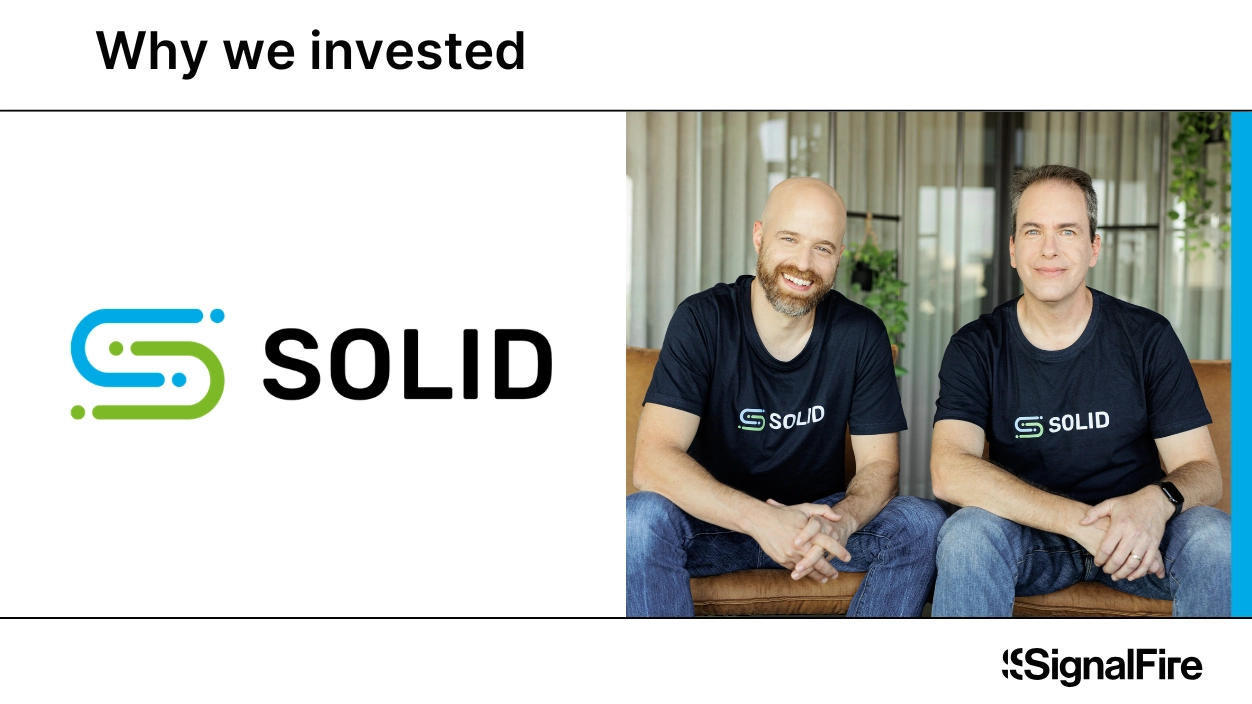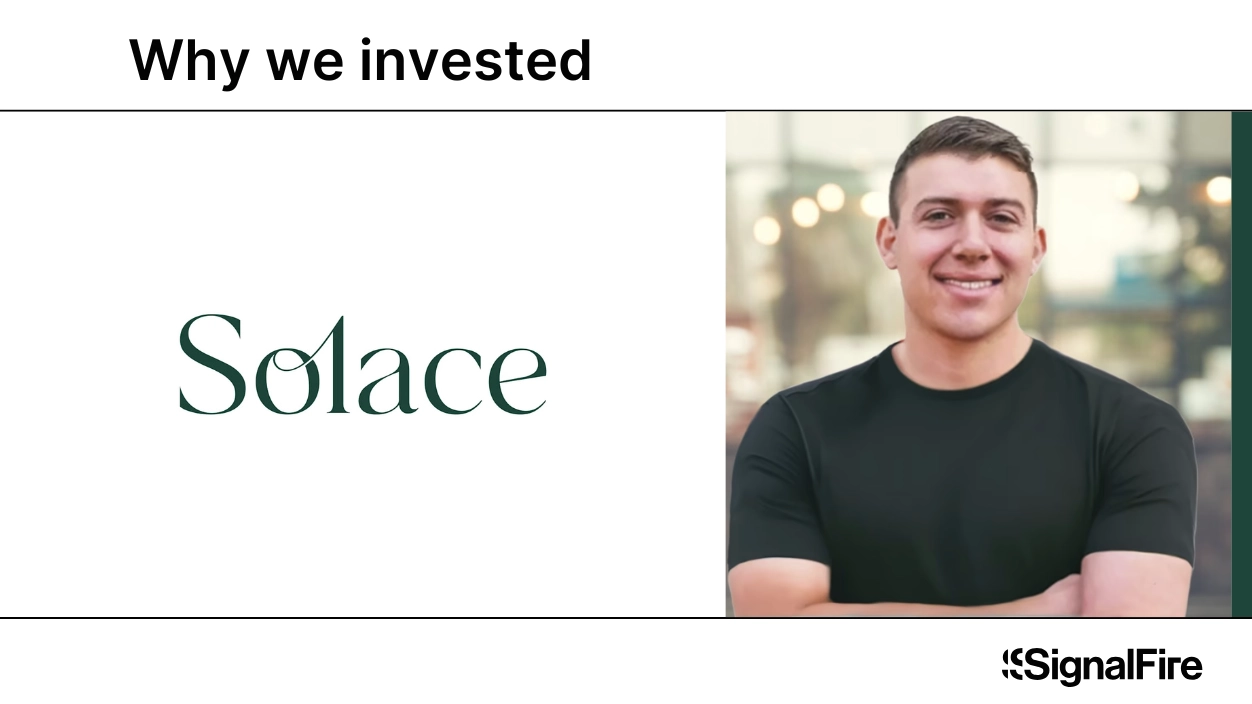
AI deepens data moats. With the world’s newfound ability to synthesize enormous volumes of information to extract and apply what matters, power is shifting to whomever builds the biggest and best data sets.
SignalFire is itself an applied data business at its core, disrupting the archaic, service-oriented industry of venture capital with our Beacon AI for investment sourcing and portfolio recruiting. So it's probably no surprise we are ardent students and fans of data-driven businesses. We are inspired by companies like CoreLogic or Verisk—two of the most profitable multibillion-dollar businesses around that own data monopolies within real estate and insurance. Now EvenUp is claiming its position as the first AI legal assistant.
EvenUp’s AI SaaS tool for personal injury law firms analyzes medical records and similar cases to suggest fair compensation and automatically generates legal documents to help plaintiffs get the compensation they deserve. SignalFire invested at the seed, led their Series A in 2021, and now we’re excited to be backing EvenUp’s $50.5M Series B, led by Bessemer Venture Partners.
 |
Like real estate and insurance, litigation finance is a massive, opaque $100B industry that profits from information asymmetry—between big insurers with enormous amounts of data on claims payouts, and plaintiffs’ lawyers who only have data from the cases they’ve handled. EvenUp is building a proprietary database of legal data for free from law firm customers through its workflow SaaS (unlike CoreLogic for real estate analytics, which has to pay for self-reported surveys). They’re also ultimately bringing transparency to an industry notoriously vulnerable to scams, while its data helps qualify victims for financing as they await a payout. And like Verisk for financial risk analytics, EvenUp helps lawyers pool data to help them predict the outcomes of cases.
“The advantages of possessing a substantial dataset cannot be overstated. Access to a larger volume of data allows us to train more capable models, but it also means we can capitalize on higher signal and lower noise data generated by these models for downstream tasks. In essence, a more extensive dataset is a catalyst for innovation” EvenUp CEO Rami Karabibar tells us. And while they built credibility to gain access to law firms’ data, EvenUp used whatever it could find. “We had to rely on weaponizing public data to start, which took us many months of engineering and data science work to make valuable, but it was better than shipping an inferior product quickly.”
 |
And the company is a perfect example of a vertical SaaS business supercharged by a new generation of foundation models. EvenUp ingests and analyzes about a million pages of medical documents every week. They’ve built their own deep learning annotation models to pull information about injuries, procedures, and medical coding from these records. But copy and pasting this unformatted data and text from a medical record into a legal document is not what a judge or insurance adjuster wants to see.
That’s where ChatGPT comes in. EvenUp can take a number of bullet points from medical records that are “rough around the edges” language, and turn them into concise paragraphs that make a legal case. This is extremely compelling, because this is where the bulk of a personal injury attorney's time goes: taking these data points and succinctly making a case in prose. Before large language models, the best alternative would have been to build templates to create these summaries, which don’t always work perfectly.
 |
It's hard to understate the massive time savings EvenUp generates. In some cases, it can take days to generate a demand package—the demand for compensation plus all supporting documentation such as medical bills and case details. For medical malpractice cases or class action lawsuits, there can be 30,000 pages of medical records or more. Producing a fully vetted demand package immediately for such a case would be game changing for personal injury lawyers who support an extremely high volume of cases.
This is a specialized use case for ChatGPT, and only possible because EvenUp brings their own dataset of legal cases. This dataset gets richer with each new lawyer they bring on as a customer, and each new case they handle, giving EvenUp a powerful data network effect. And the company needs a lot of data, as they need to understand the prospective value of every type of potential injury for every potential insurer.
Rami and Saam are among the most ambitious and thoughtful founders we’ve met. They are extremely deep in the problem space, sharp yet genuinely kind, humble, and fun people to be around. And they’ve been incredible at attracting other amazing talent to the company, including their first engineering hire, Matyas Tamas, who's a legend as Quora’s first data scientist—sourced through SignalFire's proprietary Beacon system! The founders have been power users of our system since the very beginning as they’ve scaled the company quickly in less than two years to more than 100 employees after we invested at the seed and led the series A.
EvenUp is already well on its way as the clear market leader, but we at SignalFire think we're just in the early innings of an incredible social mission to level the playing field for victims of car accidents, abuse, and more.
*Portfolio company founders listed above have not received any compensation for this feedback and may or may not have invested in a SignalFire fund. These founders may or may not serve as Affiliate Advisors, Retained Advisors, or consultants to provide their expertise on a formal or ad hoc basis. They are not employed by SignalFire and do not provide investment advisory services to clients on behalf of SignalFire. Please refer to our disclosures page for additional disclosures.
Related posts

The missing layer in Enterprise AI: Why we invested in Solid

Why we invested in Solace: Making healthcare advocacy a standard of care


